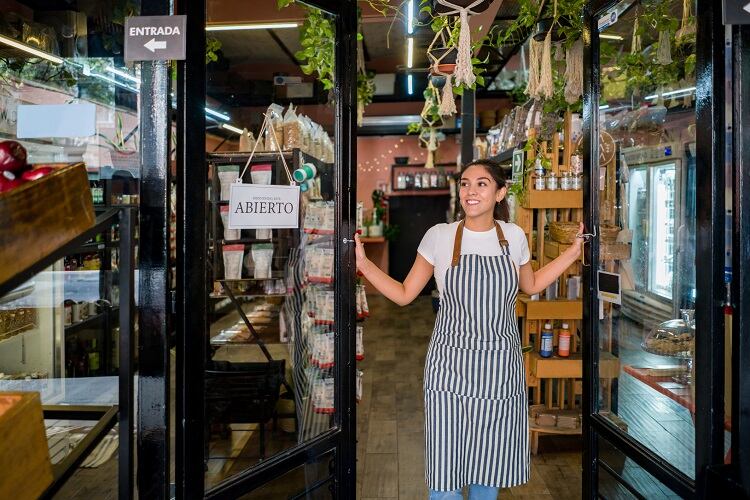For many brands, large and small, wholesalers are essential. They function as the link between manufacturers and retailers, making selling at scale a reality. And while many of those relationships are professional, and more importantly profitable, they can also be complicated and, in some cases, fraught with difficulty.
So, how do you establish a strong and successful relationship with a wholesaler?
Find the right wholesaler for your brand
There are, quite literally, millions of European wholesalers. In fact, according to business data analytics firm, HitHorizons, there are currently 3,076,200 wholesalers in operation across Europe. So, there are plenty of options out there, but it’s important you find the right one for you and your brand. But how do you go about doing that and where do you start?
“Talk to your network and your peers to find out who sells well and which wholesalers work with which stores,” said Evie Waxman, founder of snack brand, D*MN GOOD, at the recent Bread & Jam event in London. “You need to understand who your end customer is, and then it’s about finding out which wholesaler works for you. So, do your own research – what other products are they stocking? Are they stocking similar products to you?”
How to establish a relationship with a wholesaler
Once you’ve found a wholesaler you feel aligns with your brand and is targeting the right customers, you need to make contact with them. And, in the age of the internet and social media, there are lots of ways to go about this.
“I approach a lot of people through LinkedIn,” says Waxman. “And by speaking to people in the industry and asking for an introduction. And if there are any independents that you’re directly working with, or that you want to work with, ask them for an intro as well.”
But, once you have that initial connection, getting to the next stage of actually signing a contract with a wholesaler can be tricky, so putting in the legwork before approaching your ideal option is important.
“We first launched with Suma, which is a fantastic wholesaler, but we had to drum up a lot of interest from independent retailers before we could launch with them,” explains Waxman. “So, at first we were working directly with around twenty independent retailers, and then we took that business to Suma to show that our product works.”

However, there are some instances where you may need to approach both the retailer you want to get into and the wholesaler they work with, at the same time.
“We reached out to wholesalers initially, and they said ‘love the product’ but we aren’t going to be able to launch with you until you have interest from retailers, so as soon as we got interest from Whole Foods and Planet Organic we could then make all of that happen,” says Laura Harnett, founder of eco cleaning brand, Seep.
And once you’ve established that relationship with your wholesaler, they can then help to build relationships with retailers and get your products listed.
“Most wholesalers will have their own internal sales team and people taking orders and they’ll have really good relationships with the people they’re selling to,” says Jessamy Beeson-Jones, country manager for Karma Drinks.
And it’s absolutely in the best interest of the wholesaler to sell your product.
“The whole point of a good wholesaler relationship is everyone wins,” says Beeson-Jones. “So, the more you sell the more they earn.”
But be sure to develop that relationship so that those sales teams are thinking of you when they go into retailers.
“Wholesalers have a lot of relationships with brands, so if you want the salesperson to remember your particular brand then you’ve got to build that relationship,” says Harnett.
What does it mean to get listed?
Getting a product listed, means that a product becomes part of a company's standard range of products, and is available for purchase by all customers. A listed product will also be publicised as being for sale on a company's website and/or in their printed publications.

Setting the cost of your products
This is one of the most important decisions you'll make when selling through a wholesaler as you need to ensure you're accounting for their commission.
“We’ve found that wholesalers will take anywhere between 18 percent to 25 percent, maybe 30 percent margin at the max,” explains Waxman. “So, when you’re working out your own costings, you’ve got to remember what you’re hoping your RRP will be and then factor in the fact that the retailer will want their margin and then the wholesaler wants their margin, and then you’re the little guy at the end.”
But be ready to negotiate. You don’t have to accept your wholesalers first offer.
“Always push them on margins,” says Waxman.
Establish payment terms with your wholesaler
Establishing payment terms that work for both sides is essential for the success of your business. Payment terms are the number of days a wholesaler has to pay you, following receipt of your invoice. This is typically, 30, 45, 60 or 90 days, and obviously the longer the company has to pay you the harder it is to manage cashflow. It’s therefore imperative that, as a business, you decide how long you can allow the wholesaler or wholesalers you’re working with, to pay you.
And again, be ready to negotiate, as they may well be open to reducing the number of days, if they want to work with your brand, and they see you as a good investment.
“One of the things I really try to negotiate on is payment terms,” says Harnett.
“You’ve got cashflow to worry about and you need the money coming in,” adds Beeson-Jones.
And on the subject of invoices, keep an eye on when they’re due, to make sure they’re paid on time. Don’t be afraid to chase a payment when it’s due.

Communicating with your wholesaler
Good communication is an important part of the relationship with your wholesaler. Make sure you make them aware, if you’re having supply issues, so that they can communicate that to the retailer and manage expectations. Failing to communicate issues will damage your reputation as a supplier, with both the wholesaler and the retailer, and you run the risk of your product being delisted.
“If you’ve got out of stocks coming, and you can see them coming, give them three- or four-weeks’ notice. Communicate clearly with them. They can help manage their stock flow. And they’re not going to have angry customers calling them asking, ‘why can’t I get hold of x y z’ and they have no idea it’s shorted.”
Wholesalers are there to help you
Although the journey to working with a wholesaler can be tough, it’s worth the effort and, will ultimately help you to grow your business.
“Wholesalers are there for a reason,” says Mike Stevens, founder of sustainability consultancy firm, Stevens.Earth. “As brands we need them, so it’s all about learning how to work with them.”
Good luck!


